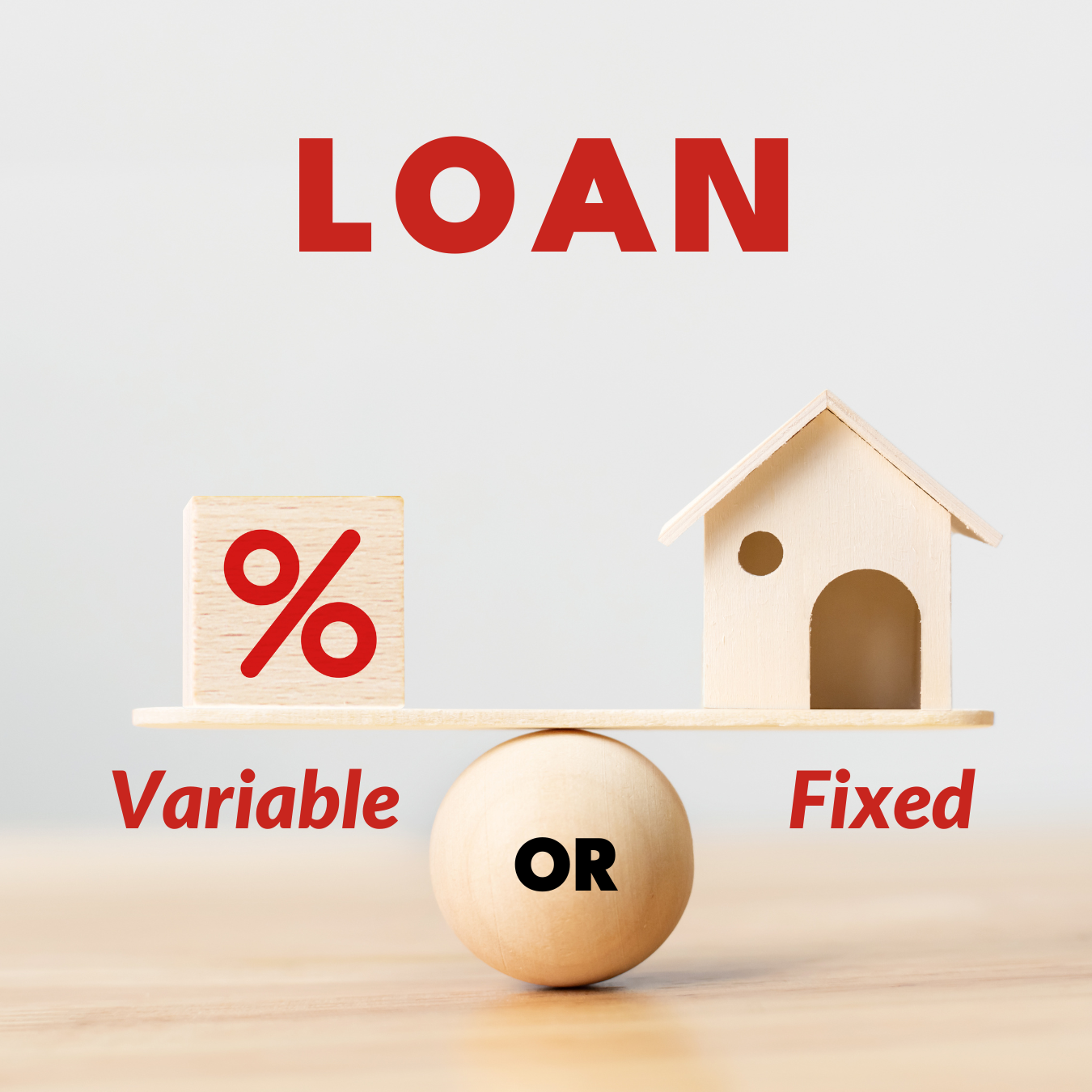Fixed or Variable Home Loan? Which is the right choice in the current scenario? Let’s dive deeper into the pros and cons of each segment.
Interest rates are at record lows. And many believe that it is the right time to fix the home loan rate. In this article, we discuss the pros and cons of variable and fixed-rate home loans.
Is a Fixed-Rate Home Loan right for me?
A fixed-rate home loan simply means that you ‘fix’ the interest rate for a period of years. Your interest rate will stay the same over that period, regardless of the rate changes in the market. Please note not all lenders offer fixed-rate products.
Advantages of Fixed-Rate Home Loans
A fixed-rate home loan provides certainty with repayments during the fixed-rate period. This certainly makes it easier to budget, giving borrowers peace of mind that they won’t face any surprises should interest rates rise during the fixed rate term.
Many borrowers, especially first-home buyers, fix their interest rate for the sake of certainty while organizing their cash flow to meet the home loan commitment.
Disadvantages of Fixed-Rate Home Loans
Fixing the loan has its downsides. Apart from not being able to take advantage of a rate decrease, borrowers might not have access to extra features like redraw or offset or be able to make extra repayments to help pay their loan faster (most lenders might limit the amount or permit partial or full offset). This makes the loan term to be longer and ensure borrower pay more interest overall. Further refinancing the fixed loan to take advantage of a rate drop, many borrowers might have to pay substantial economic costs commonly known as break or exit fees. Another con could be that after the fixed rate period is over the loan reverts to a much higher prevailing variable rate. So, borrowers will need to renegotiate just before the fixed period is over. Unfortunately, banks don’t offer discounts reserved for new loans. So, the customers may not get the prevailing sharp variable rates that they deserve.
What are break fees and why do banks charge them on early closure of loans during the fixed rate period
A Break Cost is the calculated amount of the loss Banks suffer when borrowers choose to close the facility or change the product prior to the pre-agreed fixed rate period.
Why do Banks charge break fees?
When banks and consumers agree to fix the loan interest rate for a specified period, Banks enter into a contract with a third party to lock in their funding costs at a fixed interest rate for the same period as the loan contract. Changing the facility or repaying the loan much before the agreed period, implies the Bank needs to cancel or amend the third-party agreement. The break fees represent the cost that the lender must bear. The formula can be approximately expressed as:
Break Cost = Loan amount prepaid * (Interest Rate Differential) * Remaining Term.
You might also like:
> Is It Worth Buying Your Future Retirement Home Now?
> Rentvesting or Main Residence as Your First Property?
> 11 Tips For Bidding at an Auction

Is a Variable-Rate Home Loan right for me?
A variable rate loan is a loan with interest rates that are subject to change throughout the term of the loan. The rate is influenced by the official cash rate changes set by the Reserve Bank of Australia (RBA) and by lender policy including its funding cost. In Australia, the lenders set their lending rates independent of movement in the cash rate.
Advantages of Variable-Rate Home Loans
With this type of loan, customers may get access to features like redraw and offset accounts. Customers benefit from interest rates dropping by the lender –as their repayments will go down accordingly, saving money on the life of the loan. Variable-rate home loans also give borrowers the flexibility to make extra repayments, which means paying off the loan sooner and further reducing overall interest payments. Plus, with variable-rate home loans, it’s usually easier to refinance and switch your loan later to one with a more competitive rate while avoiding paying high break fees associated with fixed-rate home loans.
Downsides of Variable-Rate Home Loans
When interest rates rise, many customers are challenged by the increase in installments. This could put them under financial stress and make it harder to budget.
To minimize this risk, banks apply a ‘stress test’ to check if their customers could manage repayments should interest rates rise. Under the new standards, they can set their own “stress test” rules. This new rule has enabled many to get a home loan but it is advisable to discuss your personal situation with a licensed professional like a mortgage broker who will be able to suggest a lender who meets your needs while protecting your credit history and potentially provide cost savings
Why not take a split loan?
With a split loan, you get the best of both loan types. In this type of loan, borrowers ‘split’ their loan so part of the loan is fixed, and the other part is variable – and customers select which portion of their loan is fixed. They make additional payments into the “variable loan”, thus saving on interest paid over the life of your loan. And with part of the loan on a variable rate, they could potentially enjoy access to extra features like an offset account. By selecting this option, customers manage financial stress by limiting the increase in commitment when interest rates increase.
To summarise:
- If you want certainty in your loan repayments and don’t need extra loan features, a fixed-rate home loan might suit your needs.
- If you want to make extra repayments or have the freedom to refinance and switch your loan for a better rate should your personal circumstances change in the future, a variable-rate home loan might suit you.
- If you want the flexibility to make extra repayments and limit the risk of any interest rate changes, the hedge provided by a split loan might suit you.
Disclaimer: The article is general in nature and does not consider your personal circumstances. Your full financial situation will need to be assessed prior to acceptance of any offer or product. To discuss please email your contact details and scenario to vivek@finkonsel.com.au or call 0415675780.
Vivek Perti, trading as FinKonsel, is Credit Rep# 473246 authorized under Australian Credit License 389328
You might also like:
> Role of a solicitor/conveyancer in property purchase
> House and land package yay or nay
> Where To Live In Sydney As A New Migrant?
Disclaimer: Articles in this blog are just the author’s or authors’ personal opinions.
It may or may not be correct. Please do your own due diligence and seek professional advice according to your own personal circumstances. The author or authors cannot be held responsible/liable for any content in this blog.
*all images are for illustration purposes only









